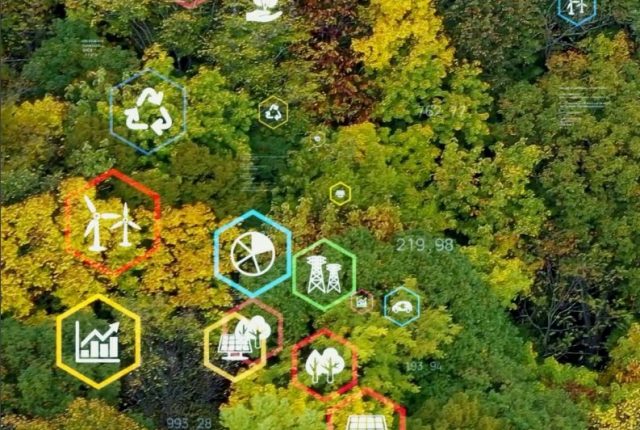The market itself reiterates how necessary it is to integrate sustainability into business, to carefully safeguard the environment, to pay attention to avoiding waste and to prioritise ethical and sustainable behaviour as cornerstones in the service sector. Aware of this, Fastweb has turned to Circularity to concretise its attention to the environment through the launch of two important projects, Plastic Free and Paper Less, with the aim of eliminating the use of single-use plastic in its offices and enhancing document dematerialisation. In parallel with the operational activities, which began in the second half of 2019, preparatory to the realisation of the two objectives, Circularity has “accompanied” Fastweb on a training path through a campaign of 7 training events in 4 cities (Milan, Rome, Naples Bari), aimed at the entire corporate population. Convinced that one of the first fundamental steps towards a ‘sustainable’ company is in fact raising employee awareness, the meetings were organised firstly to involve employees in environmental issues and then to promote the implementation of good practices to reduce the company’s environmental impact.
From the earliest training and awareness-raising stages, the aim of Fastweb’s Plastic Free and Paper Less projects has been to differentiate the company from its competitors, to be an active player in reducing the planet’s pollution and its own environmental impact by promoting sustainable and more virtuous behaviour.
Fastweb’s Plastic Free project had two joint objectives in the short and medium term:
- Initiate sustainable solutions to eliminate single-use plastic from offices by replacing it with alternative materials or by dematerialising objects such as glasses, bottles, coffee cups etc…;
- Redesign the provision of services by reducing plastic waste from their products, starting with packaging and ending with the recovery and recycling of WEEE.
The economic and environmental evaluation of the savings generated by the reduction of plastic waste and a sustainable purchasing strategy for everyday business life is the basis of the benefits of the Plastic Free campaign.
The first phase of the circular transition to plastic-free in Fastweb offices involved mapping internal plastic consumption in offices and points of sale, monitoring consumption in the following areas
vending machines, coffee machines, catering;
type of dispensers, flasks and bottles;
waste management in offices;
Extra materials (e.g. marketing posters, badges, stationery).
For the execution of the project in the medium term, it will also be necessary to involve Fastweb’s equipment suppliers, analysing the plastic components that can be replaced with bio-plastics or alternative biodegradable materials, including packaging and wrappings of the equipment that Fastweb grants on loan for use to its customers (such as modems, routers, fixed telephones, smartphones, etc). In general, all purchase categories will have to be analysed in order to map those which, due to logistical or product issues, envisage the use of plastics in order to eliminate them where possible or undertake projects (including R&D) aimed at reducing them over time.
Following the first phase of the project, Circularity has finalised the first results of the analysis on the quantitative and qualitative use of plastics in Fastweb’s offices, highlighting for the year 2019 a total consumption of more than 1,661,000 single-use plastic objects (including cups, bottles, paddles, wafers), generating an emission of about 26 tonnes of CO2 equivalent. The CO2 emitted is equivalent to the 15-year average electricity consumption of a family of three and it would take 1,315 trees to absorb it.
Circularity has therefore evaluated a sustainable replacement strategy for Fastweb consisting of the following actions:
Replace plastic cups in hot drink vending machines with biodegradable alternatives and limit the sale of products with excessive packaging (snacks, biscuits, packaged fruit juices);
Install water purifiers that do not use plastic bottles or cups;
Replace plastic objects in common use by staff and provide them with gadgets such as flasks, thermos flasks;
Replace disposable products on sale in vending machines that have predominantly plastic packaging with products that have alternative non-plastic packaging;
Installing, where possible and where not already present, a small kitchenette in the common areas where home-made meals can be kept and heated in order to have less single-serving food purchased in the shop, and therefore less plastic to dispose of;
Eliminate the printing of plasticised paper brochures or other communication materials distributed at events and points of sale;
Fastweb has accepted all of the actions suggested by Circularity; in particular, it has already verified the feasibility, time and cost of replacing or introducing from scratch greener vending machines together with the possible replacement of the products dispensed.
Subsequent steps of the project included the introduction of waste management guidelines in the locations and points of sale, in the qualification and choice of suppliers, in the management of purchases and events, etc., all with criteria to reduce plastic waste and reduce the use of plastic objects by preferring other alternative materials. With the support of Circularity, the Plastic Free strategy was fully implemented at the end of 2019 and presented to the Ministry of the Environment of Land and Sea in response to their #PlasticFree campaign; Fastweb thus obtained recognition from the Ministry and was included in the list of virtuous realities that participated in the initiative. (https://www.minambiente.it/pagina/come-aderire).
With two follow-ups at six-month and one-year intervals following the initiatives implemented and the training sessions delivered to employees, Circularity will monitor the actual improvement in Fastweb’s environmental performance with a view to reducing polluting plastic-based products. The Plastic Free project can then be included in Fastweb’s strategic sustainability plan and reported in the relevant financial statements.
The Paper Less project
Considering that on average, of 30 printed copies, 39% are thrown in the bin3, the first step towards creating an environmentally sustainable working environment is to reduce paper and ink waste, as well as the associated costs. Digital document management can reduce an organisation’s costs by up to 30% while increasing revenue by 36%4. Document dematerialisation is therefore a developing trend that can reduce waste from a green perspective but also ensure greater business productivity.
It is with this in mind that Fastweb has joined Circularity’s Paper Less project to reduce the use of paper (particularly non-recycled paper) in company operations and thus reduce its environmental impact.
In the early stages of the project, an internal mapping of the offices, devices and personnel involved in processes that involve the use of paper resources was carried out, taking into consideration parameters relating to the volumetric consumption of paper, the type of paper used, the way in which printers operate and finally the advertising material produced. With the involvement of key company functions, more than 60 processes in more than 15 different company areas were mapped.
By means of an ad hoc questionnaire, Circularity then carried out a detailed analysis of paper consumption within the main processes of the different corporate functions, with the aim of identifying for each one the percentage of digitisation and suggesting, where necessary, possible improvement actions.
Once the improvement actions have been implemented, Fastweb, with the support of Circularity, will calculate the savings achieved not only in terms of consumption but also in terms of economic savings (direct and indirect costs).
By proceeding in the Paper Less direction, Fastweb will confirm itself as an innovative and efficient company, capable of reducing not only its own environmental impact but also the costs and time spent on archiving and searching for paper data.





